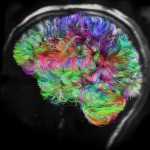Mind Your Mind Because Your Mind will Mind You!
Mind Your Mind Because Your Mind will Mind You!
(care for) (obey)
When did Evangelicals stop using their minds? How does one approach the aspects of Jesus Christ using an intellectual approach? These are two of the main questions Mark Noll asks in his books Scandal of the Evangelical Mind and Jesus Christ and the Life of the Mind, consecutively. One of his requests of Evangelicals is to be less fearful of learning and more open to new discoveries.
Recently, I had an evangelical student share with me that he does not believe any of our scientific dating systems are correct and that he completely believes in the ideas communicated in the documentary, “The Age of Deceit.” He is very bright and seems to be well read in science and anthropology. His major is Biology and he is hoping to go into medical school. So, he is using his mind, pursuing a science degree but his approach to scientific data is completely unorthodox. He also mentioned that he watched the recent Ken Ham vs. Bill Nye debate; and that he does not agree with either one of them. Instead he believes in biblical fallen angels and their role in the New World Order. Most Americans have been taught certain scientific stories (Darwinism) and for many the religious story of Evangelicalism. But it seems there are those who are coming up with their own unique stories and interpretations, possibly based on extreme literal interpretations of the Bible. My student calls himself a literalist. But I am still considering this as there may be other factors involved. The literalist concept leads me to ask some questions…
Is it necessary for the Bible to be a science book, history book, self-help book, and final source for the answers of all mysteries? Do all the pieces of the doctrinal puzzle, e.g. Jesus as Creator, as Redeemer, Jesus as human, divine, divided, One, etc. have to fit together in the same way for every believer in order for the believer to be considered as one who uses one’s mind? In other words, when a Christian says, “Jesus is the only way,” this statement can be interpreted from a variety of perspectives. Belief in the Middle-Eastern man who lived approximately 2000 years ago who will be recognized in the afterlife, belief in a “way,” a lifestyle, belief in a belief that will give one access to heaven. In other words, would Evangelicals and Christians in general have to come to the same interpretations regarding the Bible to be considered logical thinkers? And if so, what would be the shared core beliefs regarding Christ?
Recently, I had the opportunity to visit a Psychology class taught by one of my colleagues. She stated that “visualization literally builds neural pathways in the brain.” The brain then, contains road maps for our actions. In fact, she discussed a process called the HPA Loop whereby the brain fires up to the point where an individual will create a context so that the brain can then “fix” the situation. This is a very rudimentary explanation. However, it made me think about Noll’s idea of Christ and the Life of the Mind. How can we create Christological pathways in our brain whereby our actions create Christ-like actions and contexts for others? Noll states, “To embrace the energy of American evangelicalism, but also to move beyond the eccentricities of American evangelicalism into the spacious domains of self-critical, patient, rooted, and productive Christian reflection, remains that great challenge for evangelicals eager to serve Christ with the mind.” (166)
How might you create Christological neural pathways in your brain? How has your brain fired and created a similar contextual pattern to one you have experienced before? How might Christian reflection change your neural patterns and your physical actions? How do you mind (care for) your mind?

Leave a Reply
You must be logged in to post a comment.